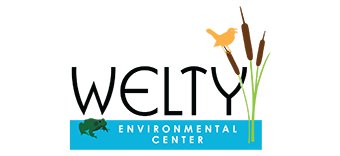Climate Change Action: Individual and Collective
Since Steve Vavrus’ talk on Feb. 27 (watch the recording, if you missed it), I’ve been reading about a significant greenhouse gas contributor, Food Waste. The issue is starting to get more attention and, while it’s a very complex problem, there are many ways we can start working on it.
One resource with a lot of good information is ReFED. This non-profit organization is working with scientists, researchers, and industry leaders to develop data-driven solutions to food loss and waste across the U.S. food system. This includes looking at front-end waste (surplus crops left to rot on fields, food that is thrown out if it remains unsold in grocery stores or uneaten in restaurants and homes) and back-end (food scraps in landfills). All together, 35% of the food produced in this county gets thrown out–more than a third of food and the resources needed to produce it is trashed!

Composting and spinning the bin was always a big hit at Welty Camps at Beckman Mill (this is a compost monster from June, 2011). We hope to start a bin at Big Hill this summer!
35% of the food produced in this county gets thrown out…
Ideally, we need to develop better ways of getting the surplus food to folks who need it (this issue goes hand-in-hand with food insecurity), but also we need to process the waste in a way that doesn’t result in excessive greenhouse gas emission.
Welty is working on a couple of projects to address food waste from the back-end….composting (keep an eye on the calendar for some late spring workshops)! When food waste ends up in the landfill, it rots, and a byproduct of this process is a lot of methane–one of the most damaging greenhouse gases. If this waste is composted, microorganisms break down the waste and return its components to the earth, releasing far less methane and providing nutrients that improve the quality of the soil. Composting is a circular process, meaning the food becomes waste that turns into soil which, in turn, can produce more food.
…more than a third of food and the resources needed to produce it is trashed every year!
Tomorrow’s facebook live at 6:30pm, “Focus on Success: Climate Change Actions that Make a Difference” by Beloit College professor Pablo Toral, is focused on actions, big and small, that will address climate change and its effects. Join the discussion (or listen to the recording later), to hear more about ways you and communities and states can support activities that avert the worst effects of climate change.
Brenda Plakans
Executive Director, WEC
info@weltycenter.org
608-361-1377






